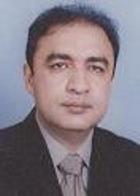Tree Of Liberty Xxiv Poem by Sadiqullah Khan
Tree Of Liberty Xxiv
‘The tree of liberty must be refreshed from time to time with the blood of patriots and tyrants. It is its natural manure.' Thomas Jefferson
The tree of liberty from the earth springs,
From contagious airs, it breathes unto life
Its fruit shared by all and sundry muse:
Nay like a bronze and copper greened,
Un-fix it, and it floats across the rivers
Walks the earth, the other self, untied
Nailed tongues. Removes sufferings silent.
From the other end of fear, begins life
Smash unless, statues and walls revered.
Like the glint falls like the Nox, in dark hour,
Beholds the bold, pulls the weak, arms
The brave. O the down trodden of my soil -
Just a step, blast ideas in mind's vaulted dome.
They shall live by poverty but the ten freedoms,
Liberty, fraternity among them the other
To imagine, to think free, to laugh, and be happy:
Sadiqullah Khan
Peshawar
September 6,2014.
Capabilities Classified by Types of Activity They Enable, Martha C. Nussbaum by Dr. Jan Garret
A necessary component of Nussbaum's capability approach is the list of the aspects of life to which capabilities relate. She asks an Aristotelian question, 'What activities characteristically performed by human beings are so central that they seem definitive of the a life that is truly human? ' Two more precise questions are then formulated, (1) 'Which changes or transitions are compatible with the continued existence of a being as a member of the human kind and which are not? ' (39) and (2) 'What kinds of activity must be there if we are going to acknowledge that a given life is human? '
(The latter is posed when she invites us to consider stories of anthropomorphic creatures that do not quite get classified as human.) (SSJ 40)
Her list includes the following (taken from SSJ, pages 41-42) :
1. Life. Being able to live to the end of a human life of normal length...; not dying prematurely...
2. Bodily health... Being able to have good health, including reproductive health; being adequately nourished...; being able to have adequate shelter...
3. Bodily integrity. Being able to move freely from place to place; being able to be secure against violent assault, including sexual assault...; having opportunities for sexual satisfaction and for choice in matters of reproduction
4. Senses, imagination, thought. Being able to use the senses; being able to imagine, to think, and to reason- and to do these things in... a way informed and cultivated by an adequate education...; being able to use imagination and thought in connection with experiencing, and producing expressive works and events of one's own choice...; being able to use one's mind in ways protected by guarantees of freedom of expression with respect to both political and artistic speech and freedom of religious exercise; being able to have pleasurable experiences and to avoid nonbeneficial pain
5. Emotions. Being able to have attachments to things and persons outside ourselves; being able to love those who love and care for us; being able to grieve at their absence, to experience longing, gratitude, and justified anger; not having one's emotional developing blighted by fear or anxiety....
6. Practical reason. Being able to form a conception of the good and to engage in critical reflection about the planning of one's own life. (This entails protection for liberty of conscience.)
7. Affiliation. Being able to live for and in relation to others, to recognize and show concern for other human beings, to engage in various forms of social interaction; being able to imagine the situation of another and to have compassion for that situation; having the capability for both justice and friendship.... Being able to be treated as a dignified being whose worth is equal to that of others.
8. Other species. Being able to live with concern for and in relation to animals, plants, and the world of nature.
9. Play. Being able to laugh, to play, to enjoy recreational activities.
10. Control over one's environment. (A) Political: being able to participate effectively in political choices that govern one's life; having the rights of political participation, free speech and freedom of association... (B) Material: being able to hold property (both land and movable goods): having the right to seek employment on an equal basis with others...
There are two important qualifications on this list: First, they are a list of separate components. They are distinct in quality and all are of central importance. Second, they are related to one another in complex ways that can only be discovered empirically. (SSJ 42) Note that in her formulation of the basic capabilities the formula 'being able to' is found in almost every example. @
people.wku.edu/jan.garrett/ethics/nussbaum.htm
This poem has not been translated into any other language yet.
I would like to translate this poem